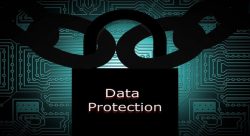 It is very important to protect your privacy online to avoid identity theft and fraud. The Internet is a dangerous world. You have to be extra careful to protect your privacy online. There are a number of viruses and malware that are trying to enter into your computer and hack your data. Even the so-called reputable sites are tracking and storing your personal information these days, with or without your knowledge for marketing purposes. Today, we are giving you six tips to protect your privacy online.
It is very important to protect your privacy online to avoid identity theft and fraud. The Internet is a dangerous world. You have to be extra careful to protect your privacy online. There are a number of viruses and malware that are trying to enter into your computer and hack your data. Even the so-called reputable sites are tracking and storing your personal information these days, with or without your knowledge for marketing purposes. Today, we are giving you six tips to protect your privacy online.
Tips to Protect Your Privacy Online
- Basics: You have to ensure that your basics are right. In most cases, the problems are created when you forgot to do the basics. You should never open any email and attachment if you are not sure about the sender or when the emails look suspicious. Most of the time, malware and viruses enter your system through these types of emails and attachments. To protect your privacy online you should never click unknown, unnecessary and suspicious links. If you do so, the chances of getting infected with viruses increase.
All the software and antivirus programs installed in your system should be up-to-date. It is recommended that you set “Turn on system updates” so that your system is up-to-date at all times.
- Privacy Settings: Updating your privacy settings is the best way to protect your system from third party attacks. You can set the privacy setting for the system from the corresponding browser settings option. For example, to change the privacy settings in Internet Explorer, go to Tools menu, click on Internet options and then click Privacy tab. If you are using social networking sites such as Facebook, Twitter and email accounts, make sure you set the privacy settings correctly so that you don’t share your information with everyone.
- Blocking Cookies: Blocking cookies is one of the best ways to protect your privacy online. When you block cookies, websites can no longer track the date and time of your last visit. It will also block the details such as your username, password, etc. from the websites.
- Unlinking Accounts: Nowadays, many sites provide you with the option to link your accounts with other accounts. For example, when you try to open a job opening from LinkedIn, it asks you to use your Google account or your Facebook account to log in. This feature maybe be easy for the user to connect, but it has a lot of risk associated with it. When you link your accounts in this manner, all those accounts become more vulnerable to attacks. Therefore, you have to make sure that accounts are not linked.
- Secure Connection and Antivirus: You should always use a secure Internet connection to protect your valuable information. It is always recommended to use a good antivirus that can protect your privacy online.
- Stronger Passwords: One of the most important ways to protect your privacy online is to use a strong password. You should use strong passwords for your email accounts, Wi-Fi, system, and bank account. It is easy to crack a normal password, so always use a password that is difficult to crack.
Conclusion
If you are seriously concerned about your Internet security, then following these simple tips will help to protect your privacy online to a great extent.

 Email article
Email article



